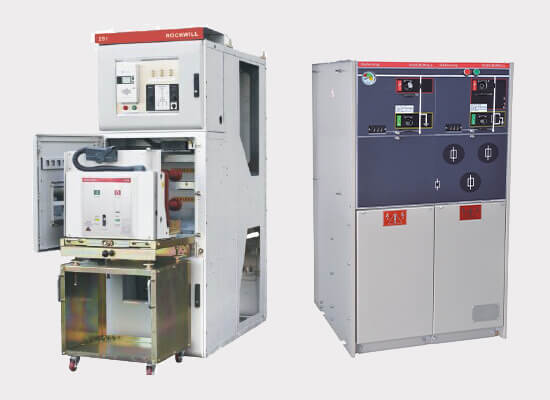AIS vs GIS: How to select MV Switchgears

MV switchgear is an important part of power distribution system for maintaining the continuity of service, and you have to consider some different aspects based on your needs before selecting a suitable MV switchgear. For instance, price, size, features, service life, operating environment, maintenance, etc.
Air insulated switchgear (AIS) and gas insulated switchgear (GIS) are two common types of switchgears that we usually meet in the distribution system, but do you know what is the difference between them and which one is better for you? In order to answer this question, we have to take a closer look at them. Here are some differences below.
- Volume Size: When the voltage is higher than 10kV, the size of GIS is smaller than AIS.
In fact, the size of occupied space is inversely proportional to the dielectric strength. Normally, the dielectric strength of air is less than 3kV/mm, and this value would be lower when the air is moist or polluted. However, the SF6 gas shows a dielectric strength of 9kV/mm or higher which means the GIS could have much smaller size and it would be suitable for some places where have limited space.
- Cost: The Cost of GIS is much higher than AIS.
The AIS adopts the common structure which do not have high requirements for the air tightness and production techniques, but it is very essential for GIS to have a great gas tightness which should use high production techniques to ensure the functionality of the insulation. Therefore, the GIS is more expensive than the AIS.
- Features Differences
GIS: High gas tightness means it is not easy to open it and make a modification, like installing some sensors in it for monitoring its operating state, but on the other hand, it also means it has a high stability for maintenance free in a long term.
AIS: General installation requirements means it is more convenient for operation and maintenance, but it also means some components are exposed to the air which will accelerate the aging of components.
In conclusion, considering and evaluating these aspects and selecting the type which is more suitable for you. If you have any related questions, you can also contact us directly, and we will try our best to give you support.
See more information about > {%seoKeyword#15%}
Technical Service:
ROCKWILL®, China. Provide with best support
Tel: 0086-577-27869969
Email: barry@rockwill.cn